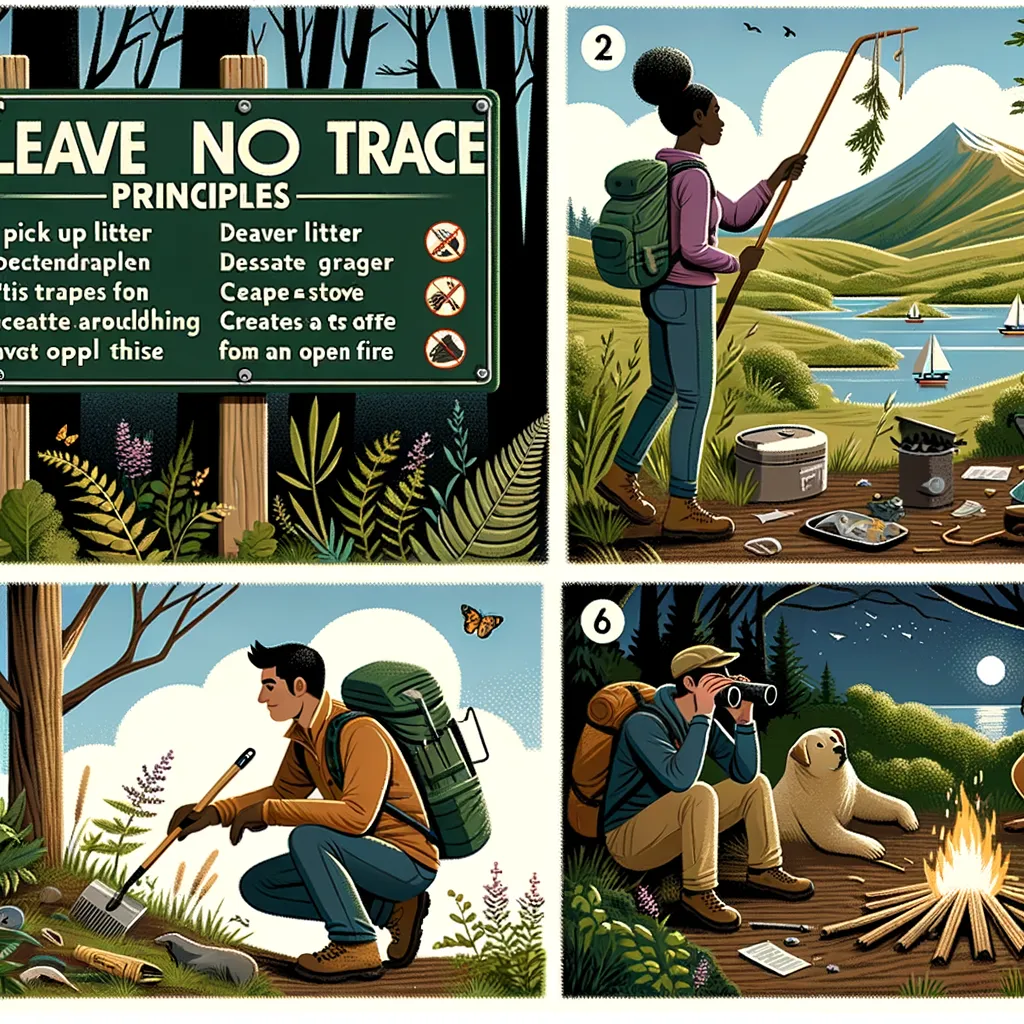The Essential Guide to Leave No Trace Principles for Parents
Welcome, eco-conscious parents, to your ultimate guide on the Leave No Trace Principles! As stewards of the planet, it’s crucial we instill in our little ones the importance of preserving the natural beauty surrounding us. Embark on this enlightening journey with us, where we unravel the significance of these principles, ensuring our outdoor adventures are both fun and environmentally friendly.
Why Leave No Trace Matters
The Leave No Trace Seven Principles are more than just guidelines; they are a way of life that protects our environment and ensures it remains vibrant and healthy for generations to come. By teaching our children these principles, we provide them with the tools to interact with nature responsibly, fostering a deep-rooted respect and appreciation for the natural world.
1. Plan Ahead and Prepare
Preparation is key to a successful and eco-friendly outdoor adventure. It involves understanding the regulations and special concerns of the area you’ll visit, preparing for extreme weather and emergencies, and ensuring you have the minimum equipment needed to reduce your impact. This principle teaches our kids the importance of responsibility and foresight, skills invaluable in every aspect of life.
2. Travel and Camp on Durable Surfaces
The beauty of untouched nature is unmatched, and it’s our responsibility to keep it that way. This principle emphasizes the importance of using existing trails and camping spots, avoiding the creation of new ones. It’s a valuable lesson in respecting boundaries and understanding the impact of our actions on the environment.
3. Dispose of Waste Properly
“Pack it in, pack it out” is a simple yet powerful ethos we must adopt to preserve the natural beauty of our outdoor spaces. Educating our children on the importance of properly disposing of waste, including organic waste like apple cores and banana peels, is crucial. It not only keeps the environment clean but also teaches them responsibility for their actions.
4. Leave What You Find
Nature’s treasures are for everyone to enjoy. Teaching our children to appreciate but not take or alter natural objects and features ensures these wonders remain for others to enjoy. This principle fosters a sense of community and shared responsibility towards our natural spaces.
5. Minimize Campfire Impacts
Campfires are a quintessential part of outdoor adventures but managing them responsibly is essential to minimize our impact. This includes using established fire rings, keeping fires small, and thoroughly extinguishing them. It’s a great way to teach our children about the power of fire and the importance of controlling it to protect our woodlands.
6. Respect Wildlife
Wild animals are not tourist attractions, and it’s important to respect their space and natural behaviors. By observing wildlife from a distance, we not only protect their natural habitats but also instill in our children a deep respect for living things and their independence.
7. Be Considerate of Other Visitors
The great outdoors is a shared resource, and everyone deserves to enjoy it peacefully. Teaching our kids to be mindful of their noise, to yield to other hikers, and to respect the tranquility of nature ensures everyone’s outdoor experience remains pleasant and serene.
By embracing these Leave No Trace Principles, we guide our children towards becoming conscientious, eco-friendly individuals. Our adventures in the great outdoors become not just about exploration and fun but also about preserving the beauty of nature for future adventurers. As we continue on this journey, remember, the greatest gift we can give our children is the knowledge and passion to protect our planet.
In the next section, we delve deeper into how to incorporate these principles into our daily lives, offering practical tips and engaging activities that make learning about nature conservation an adventure in itself. Stay tuned as we continue to explore the path to becoming eco-conscious parents, guiding our children to a brighter, greener future.




